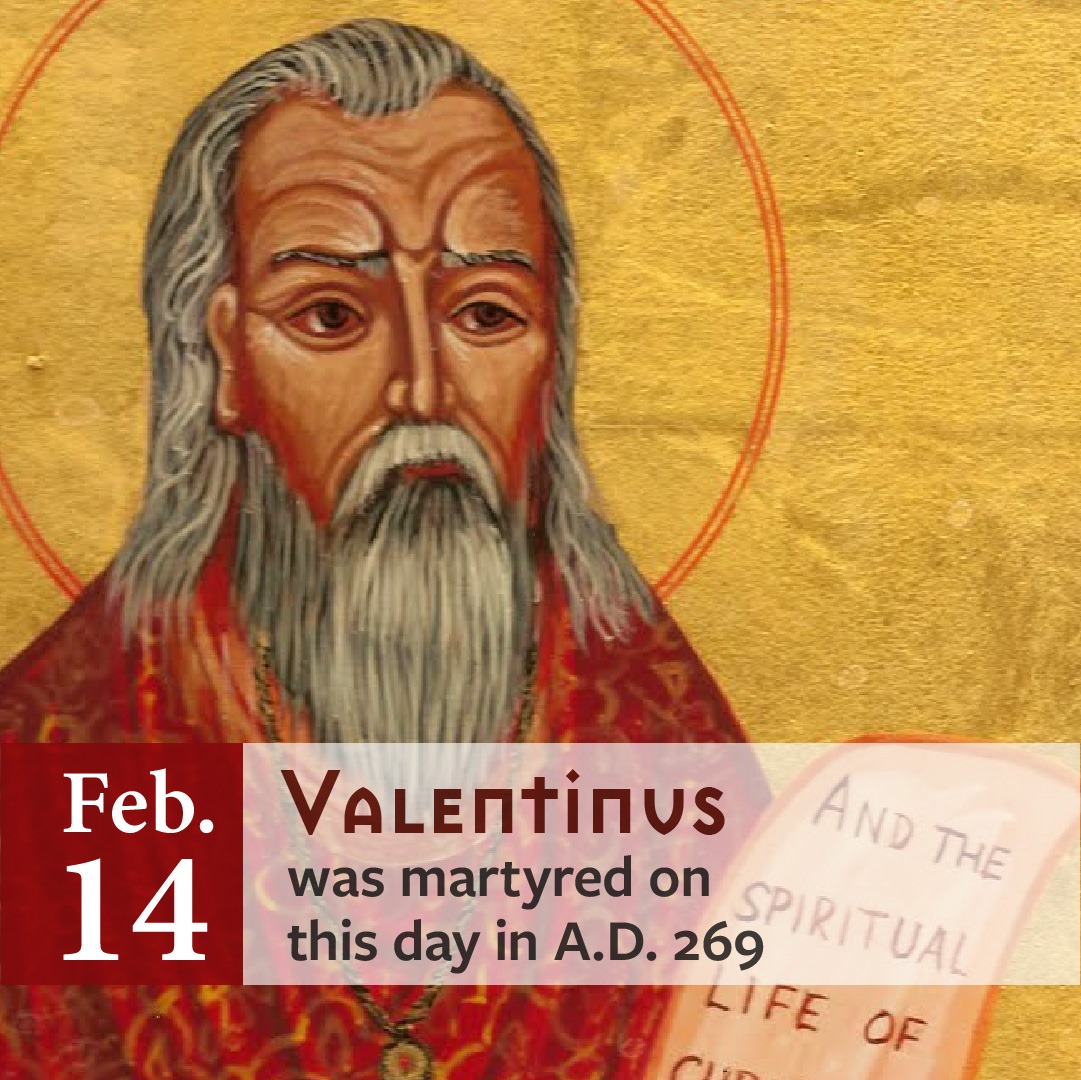By Pastor Stephen Hess –
If you walk into a grocery store during the month of February, an entire section of the store will be filled with chocolates, flowers, and pink greeting cards. The stores are preparing, of course, for what is commonly known as Valentine’s Day—a day celebrating romantic love and relationships. Many people do not realize, however, that this holiday was named after an early Christian named Valentinus (who later became known as Saint Valentine) and his story is worth reflecting upon today.
The details of Valentinus’s life are somewhat murky. There were a number of early Christians who bore the name Valentinus. The most well-known of them was a third century bishop in Rome who was executed by the Roman Emperor Claudius II. The story goes that Claudius imposed a ban on marriages in order to boost his army. Only single men had to enter the army, and too many men were dodging the draft by getting married. In an effort to protect Christian marriage, Valentinus performed secret marriages, and when he got caught, he was sentenced to death and executed on February 14th, 269.
Whether all these details of Valentinus’s life are true or mixed with legend remains unclear. What is clear, however, is that Valentinus was a martyr. The word martyr comes from the Greek word martys which means “witness.” It often referred to a witness in the court of law who had direct knowledge of certain people or events and was able to speak about them. In the New Testament, the word “witness” is used to refer to those who testify to others about Jesus. For instance, before Jesus ascended into heaven, he told his disciples: “You will be my witnesses in Jerusalem and in all Judea and Samaria, and to the end of the earth” (Acts 1:8).
 In the early years of the church many of those who bore witness to Jesus were persecuted for their faith. For a long time, the Roman Empire made it illegal to practice Christianity and threated those who disobeyed with execution. Many Christians, like Valentinus, chose to remain faithful to Christ even in the face of death. Those who went to their deaths for following Jesus became known as martyrs.
In the early years of the church many of those who bore witness to Jesus were persecuted for their faith. For a long time, the Roman Empire made it illegal to practice Christianity and threated those who disobeyed with execution. Many Christians, like Valentinus, chose to remain faithful to Christ even in the face of death. Those who went to their deaths for following Jesus became known as martyrs.
Even before Valentinus, the Book of Revelation describes the souls of those who were slain for Christ crying out for justice: “When he opened the fifth seal, I saw under the altar the souls of those who had been slain for the word of God and for the witness they had borne. They cried out with a loud voice, ‘O Sovereign Lord, holy and true, how long before you will judge and avenge our blood on those who dwell on the earth?’” (Rev. 6:9-10). Revelation goes on to make clear that the day will come when the enemies of Christ will be judged and those who have persevered even unto death will reign with Christ in his eternal kingdom.
Still today there are millions of Christians who are persecuted for following Jesus. Valentinus and all the other Christian martyrs throughout the centuries are a reminder that Jesus is so valuable that he is worthy of the ultimate sacrifice. As Jesus said, “Whoever loves father or mother more than me is not worthy of me, and whoever loves son or daughter more than me is not worthy of me. And whoever does not take his cross and follow me is not worthy of me. Whoever finds his life will lose it, and whoever loses his life for my sake will find it” (Matt. 10:37-39).
In our modern culture, Valentine’s Day focuses on the idea of love. As Christians, we need to remember that we are called to love Jesus above all other loves. In the words of church historian Michael Haykin, “There is nothing inherently wrong with modern commercial traditions, but Saint Valentine’s Day is a good day to also remember that there is a love that surpasses all earthly loves: our love for our great God and our Savior, his dear divine Son, Jesus.”

